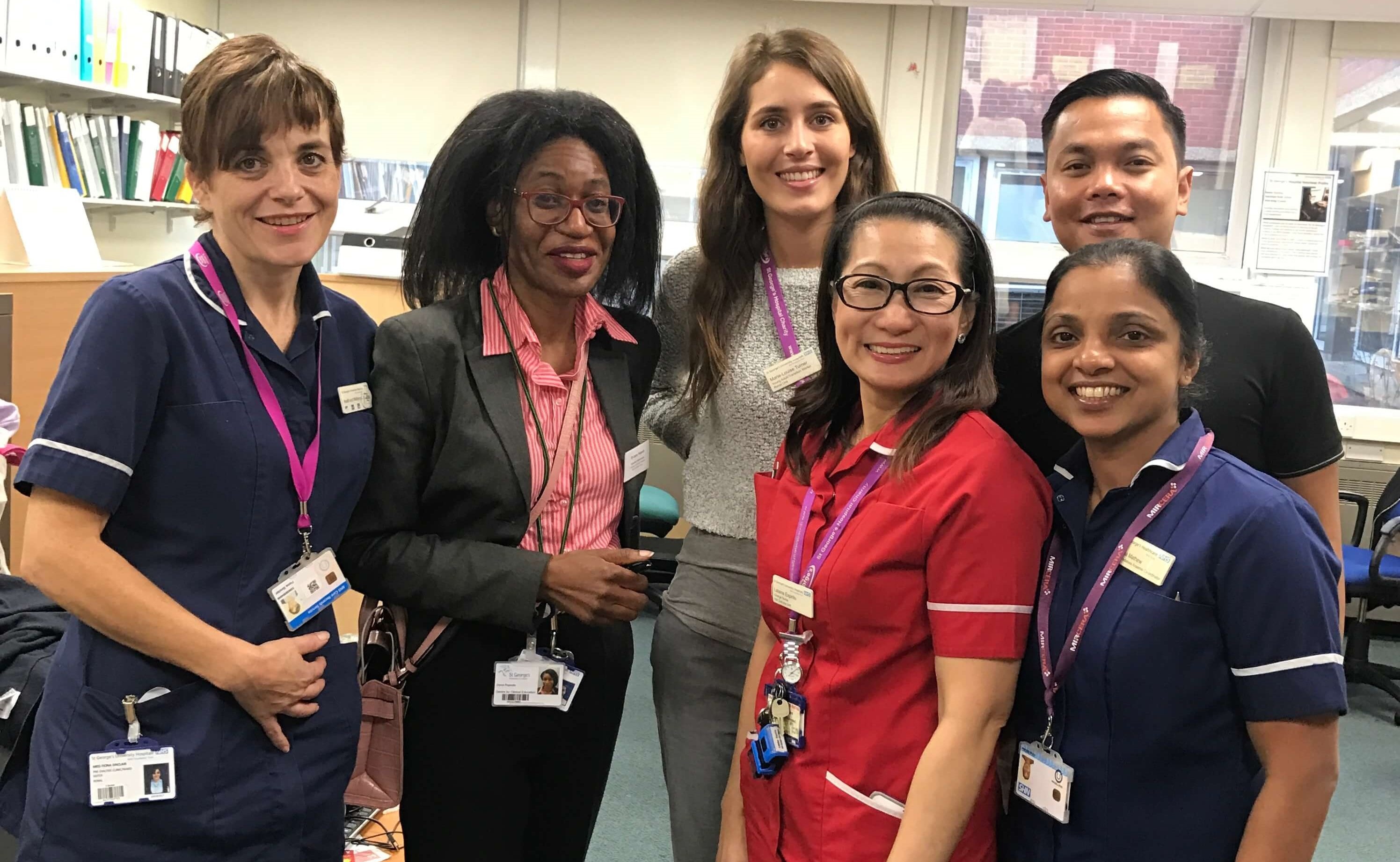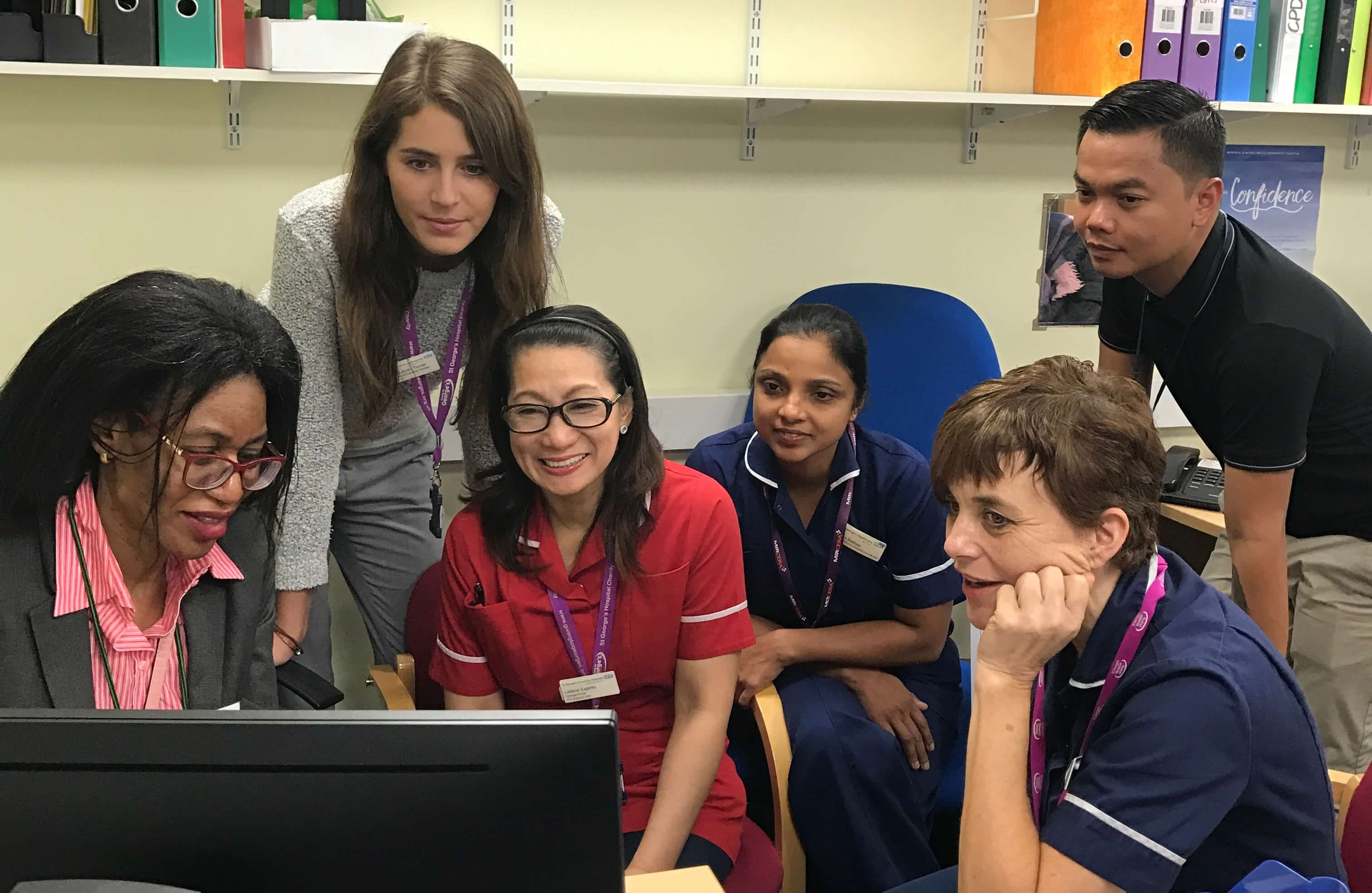St George’s Renal team improves outcomes for young adults on Haemodialysis
 The Renal department at St George’s has implemented a successful new initiative to improve outcomes for young adults on Haemodialysis (HD).
The Renal department at St George’s has implemented a successful new initiative to improve outcomes for young adults on Haemodialysis (HD).
The new initiative means that young adults (17-28 years) on haemodialysis were given the opportunity to form a cohort on a Monday, Wednesday and Friday.
They received support from a dedicated Young Adult Worker and a multi-disciplinary team, which hold monthly meetings to discuss each young adult, and were also seen in a Young Adult Clinic.
Young adults with end stage renal disease are identified as a particularly vulnerable group, and those on haemodialysis are shown to have a higher risk of mortality when compared to their contemporaries.
Additionally, young adults often report feeling isolated in an environment where most other patients are decades older. The Renal team wanted to explore whether providing the opportunity for peer support by cohorting patients together could improve outcomes for this group.
As a result of this initiative, the number of dialysis sessions not attended (DNA rate) has reduced from 20.8% (2014) to zero (as of October 2017). The yearly medication adherence survey has shown significant improvement and the quality of dialysis has improved above the Renal Association's recommendations.
This work was acknowledge by the European Society for Paediatric Nephrology (ESPN) at the Annual Congress in Glasgow last month, and was selected as an award winning presentation. Part of this work was also a featured in Canterbury at SWEKS (South West and East Kidney Society) in August 2017, and was held up as an example of good practice.
A general practitioner at Canterbury Hospital told the team: “This is a no brainer as a means of managing and engaging young adults with an irreversible chronic disease.”
Dr Paramit Chaudhary, Renal Consultant, Guy’s and St Thomas’ Hospital added: “Inspiring idea, young dialysis patients across the region would benefit from cohorting to improve outcomes. Units across London should aim to work collaboratively to improve care for young adults”
Dr Joyce Popoola, Renal Lead for Transition and Young Adult Care, at St George’s said: “The appointment of our young adult worker Marie-Louise Turner, made possible by a start up grant from Kidney Care UK, has revolutionised the care of our young adults in the renal department."






